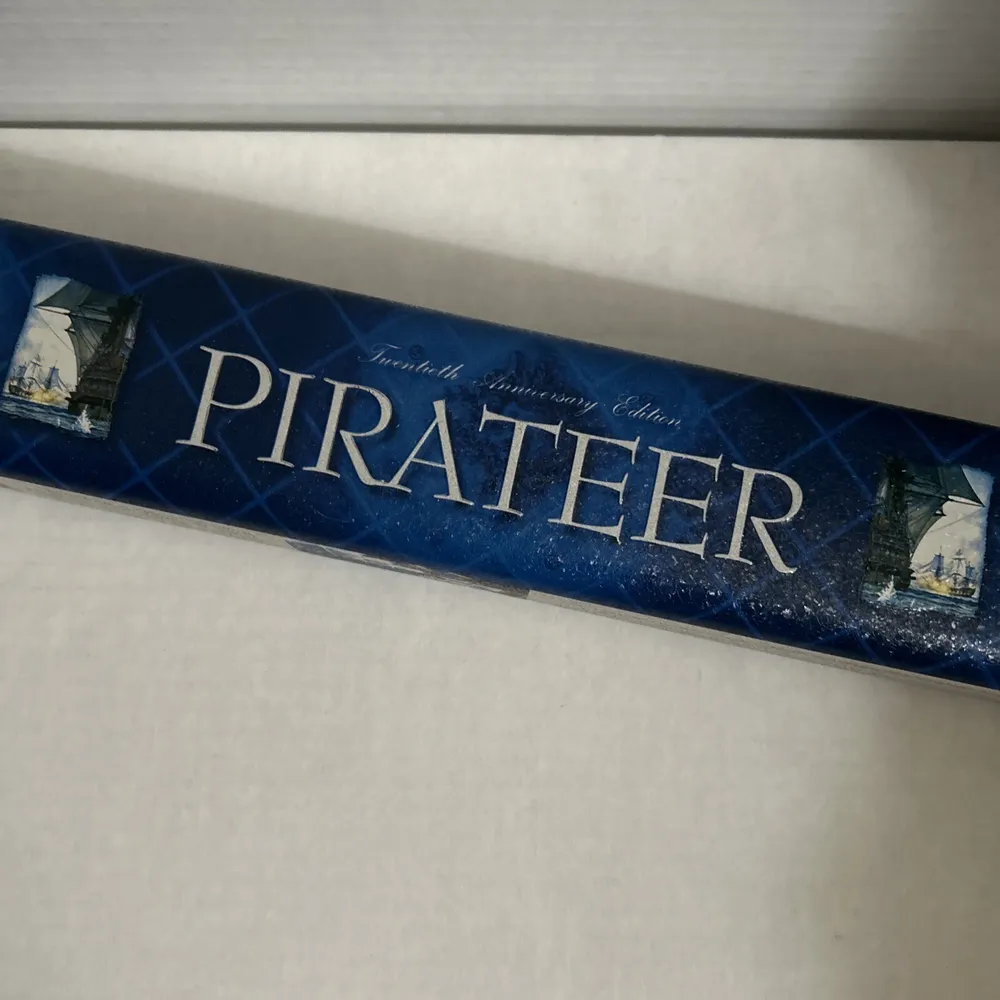Pirateer (1978)
Pirateer
“Pirateer” is a spatial board game for two to four players created by Scott Peterson in 1978. The game was initially named “Privateer” before being published by the Mendocino Game Company in 1995. The name of the game is believed to be a combination of “privateer” and “pirate”. The game has received positive reviews and awards, including winning the Mensa Select Award in 1996 and being named “Game of the Year” by John Kovalic of the Wisconsin State Journal.
Game Components of Pirateer
How To Setup Pirateer
To set up the game, each player chooses a band of three ships and places them at their designated home port on the board. The centrally located treasure is placed on the board, and each player receives their respective flags. The game board is set up to include obstacles, trade winds, and currents, which will affect ship movement throughout the game.
Gameplay Mechanics and Game Objective
Player Experience
Playing Pirateer is an engaging and strategic experience, especially for those who enjoy maritime-themed games. The game requires a balance of luck and strategy, as players must navigate the high seas while dealing with the randomness of dice rolls and environmental factors.
Pros
Cons
Personal Thoughts on Pirateer
Pirateer is ideal for families or casual gamers looking for a game that combines strategy with a touch of luck. It’s a great choice for those who enjoy maritime themes and are looking for a game that can be played in about an hour. However, serious gamers seeking highly complex or crunchy mechanics might find Pirateer a bit too simple. Despite this, its addictive nature and strategic elements make it a fun addition to any board game collection.
We are supported by our audience. When you purchase through links on our site, we may earn an affiliate commission, at no extra cost for you. Learn more.

